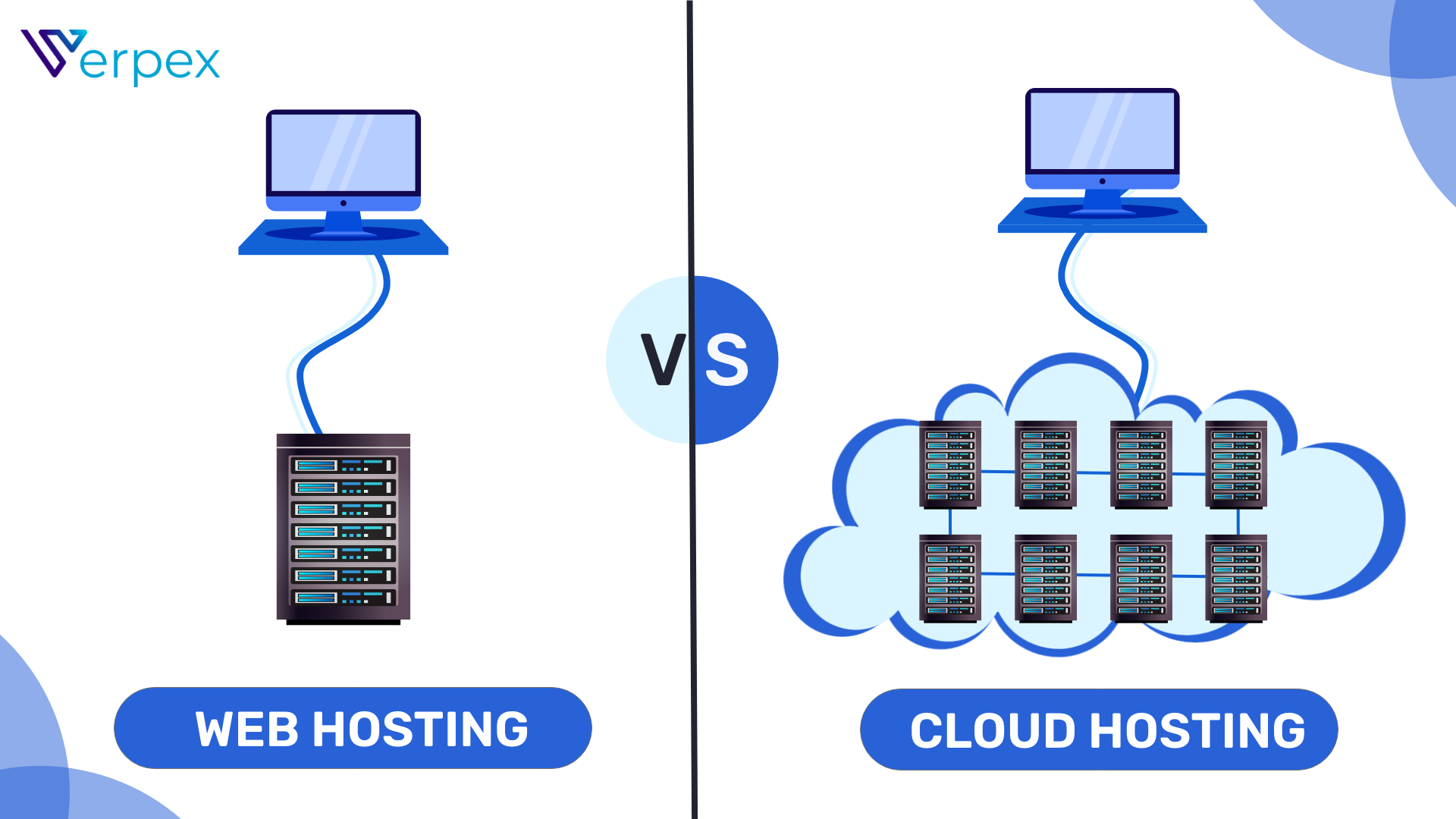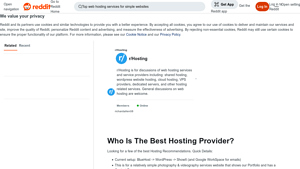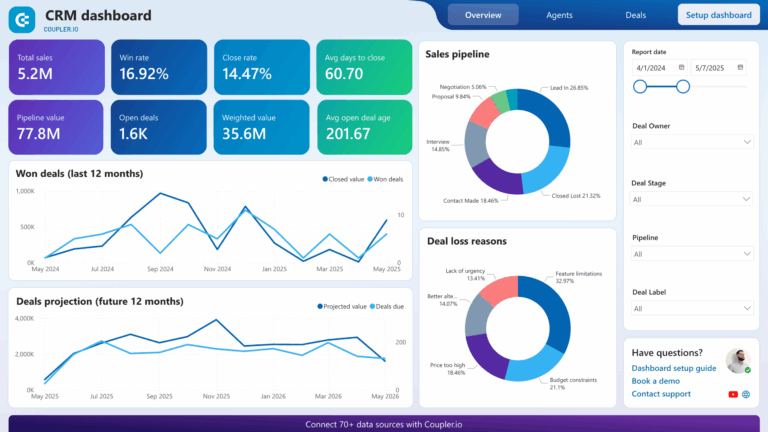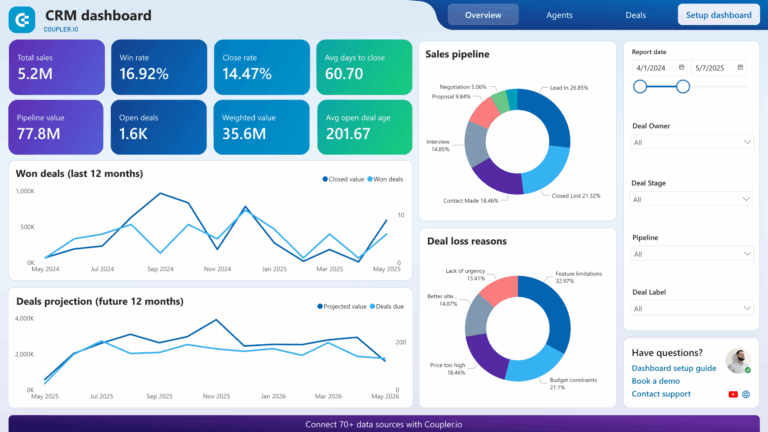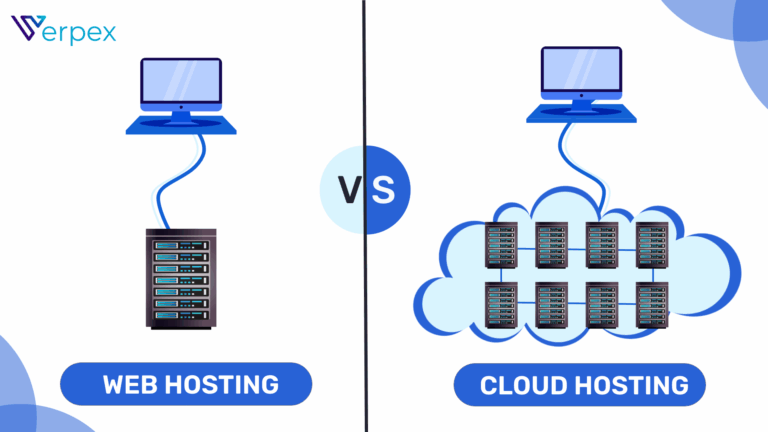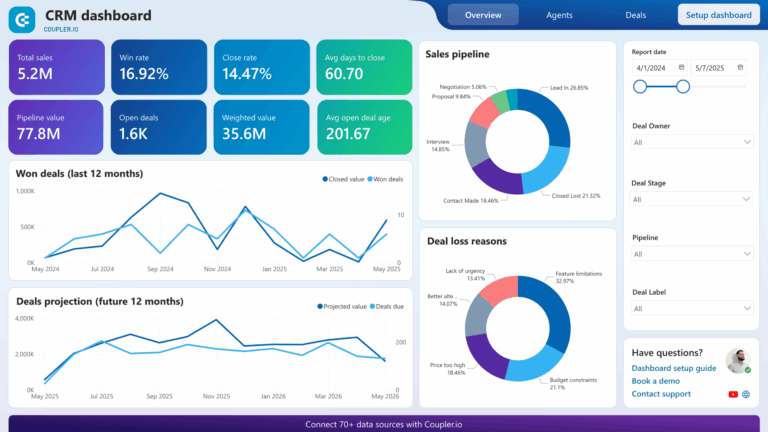The 7 Best Web Hosting Services of 2025
Choosing Your Digital Home: An Introduction to Web Hosting
When embarking on the journey of building a website, one of the most critical decisions you’ll face is choosing the right web hosting service. This choice serves as the foundation for your online presence, influencing everything from site speed and security to uptime and customer support. With countless options available, many new website owners find themselves overwhelmed by the variety of hosting plans, features, and price points.
Understanding the Importance of Web Hosting
Selecting an appropriate hosting service is not just a technical consideration; it is a strategic decision that can significantly affect your website’s performance and user experience. Whether you’re a small business owner aiming to establish an online storefront, a blogger sharing your thoughts with the world, or a developer launching a portfolio, the right hosting plan can help you achieve your goals. A reliable host ensures that your website is accessible to visitors, loads quickly, and remains secure from cyber threats. Conversely, poor hosting can lead to slow loading times, frequent downtimes, and a frustrating experience for both you and your users.
Navigating the Confusion
The plethora of options can create confusion. Shared hosting, VPS, cloud hosting, and dedicated servers are just a few of the terms you may encounter, each with its own set of features and benefits. Additionally, web hosting providers often market their services using technical jargon that can be misleading or difficult to interpret for those not versed in web technologies.
Your One-Stop Resource
This guide aims to demystify the world of web hosting, serving as a comprehensive resource for understanding different hosting types and comparing top providers. We will break down the features and pricing of various hosting services, helping you identify the best fit for your specific needs and budget. By the end of this guide, you will have the knowledge necessary to make an informed choice, ensuring your website is built on a solid foundation that supports your goals.
In the following sections, we will explore the different types of web hosting, the key factors to consider when selecting a provider, and a comparison of the best hosting services available today. Whether you’re a novice or someone with a bit of technical know-how, our expert insights will help you navigate the complex landscape of web hosting with confidence.
The Best Web Hosting Providers of 2025
5. Bluehost – Top Choice for Reliability!
In the Reddit discussion on the best hosting provider, users highlighted TopHost and Marksystem for their exceptional value and competitive pricing. These providers cater to budget-conscious individuals and small businesses seeking reliable hosting solutions without sacrificing performance. The community feedback underscores their affordability and overall satisfaction, making them strong contenders for those prioritizing cost-effectiveness in their web hosting choices.
- Website: reddit.com
- Company Age: Approx. 20 years (domain registered in 2005)
5. Bluehost – Top Choice for Reliable Performance
In CNET’s review of the best web hosting services for 2025, SiteGround emerges as the top choice, particularly for WordPress users. It offers a comprehensive suite of features tailored for both beginners and experienced developers, including user-friendly tools and strong security measures. This makes it an ideal option for those seeking reliable performance and enhanced protection for their websites.
- Website: cnet.com
- Company Age: Approx. 31 years (domain registered in 1994)
5. Hostinger – Speed and Security Combined!
Hostinger stands out as a top choice for web hosting, particularly for those seeking a fast and secure platform. With its impressive performance metrics, Hostinger excels in delivering reliable services for various users, including small businesses and individual bloggers. The hosting provider offers affordable plans, making it accessible for budget-conscious customers, while also ensuring robust security features to protect your website effectively.
- Website: hostinger.com
- Company Age: Approx. 23 years (domain registered in 2002)
20x Faster: Hosting.com – The Speed Champion!
Hosting.com offers top-tier web hosting services optimized for speed, boasting up to 20x faster performance thanks to its premium hardware. Ideal for businesses and individuals seeking reliability, the platform features 24/7/365 global support and a risk-free trial with a money-back guarantee. Whether you’re running a small blog or a large e-commerce site, Hosting.com provides the performance and support necessary to ensure your online presence thrives.
- Website: hosting.com
- Company Age: Approx. 29 years (domain registered in 1996)
What is Web Hosting? A Plain English Guide
Web hosting can be thought of as renting a space where your website “lives.” Just like a physical house needs a plot of land to be built on, a website requires a server to store its files, such as images, text, and code. When you want to create a website, you essentially need to find a place to keep all your website’s data safe and accessible to visitors online. In this guide, we will break down the concept of web hosting in simple terms, using analogies and clear explanations to help you understand the essentials.
What is a Server?
A server is like a powerful computer specifically designed to store, process, and manage data for websites. Imagine a server as a large apartment building, where each apartment represents a different website. Just as each apartment has its own address, each website has its own unique location on the internet, known as an IP address.
When you rent a server space from a web hosting provider, you are essentially leasing a portion of that “apartment building.” The hosting provider manages the building, ensuring that everything runs smoothly, from maintaining the hardware to ensuring security and performance. This means that you don’t have to worry about the technical aspects of keeping your website online; the hosting provider takes care of it for you.
How Do Domains and Hosting Connect?
To understand how domains and hosting connect, think of your website’s domain name as the address of your house. Just like you need a specific address for people to find your home, your website needs a domain name (like www.yoursite.com) so that visitors can easily access it.
When someone types your domain name into their web browser, the request is sent to the internet, which then looks for the corresponding server where your website is hosted. This is similar to how a postal service uses your address to deliver mail to your home. The server then sends the necessary files back to the visitor’s browser, allowing them to view your website.
In summary, the domain name is the address that directs visitors to your website, while web hosting is the service that provides the space and resources for your website to exist and be accessed online.
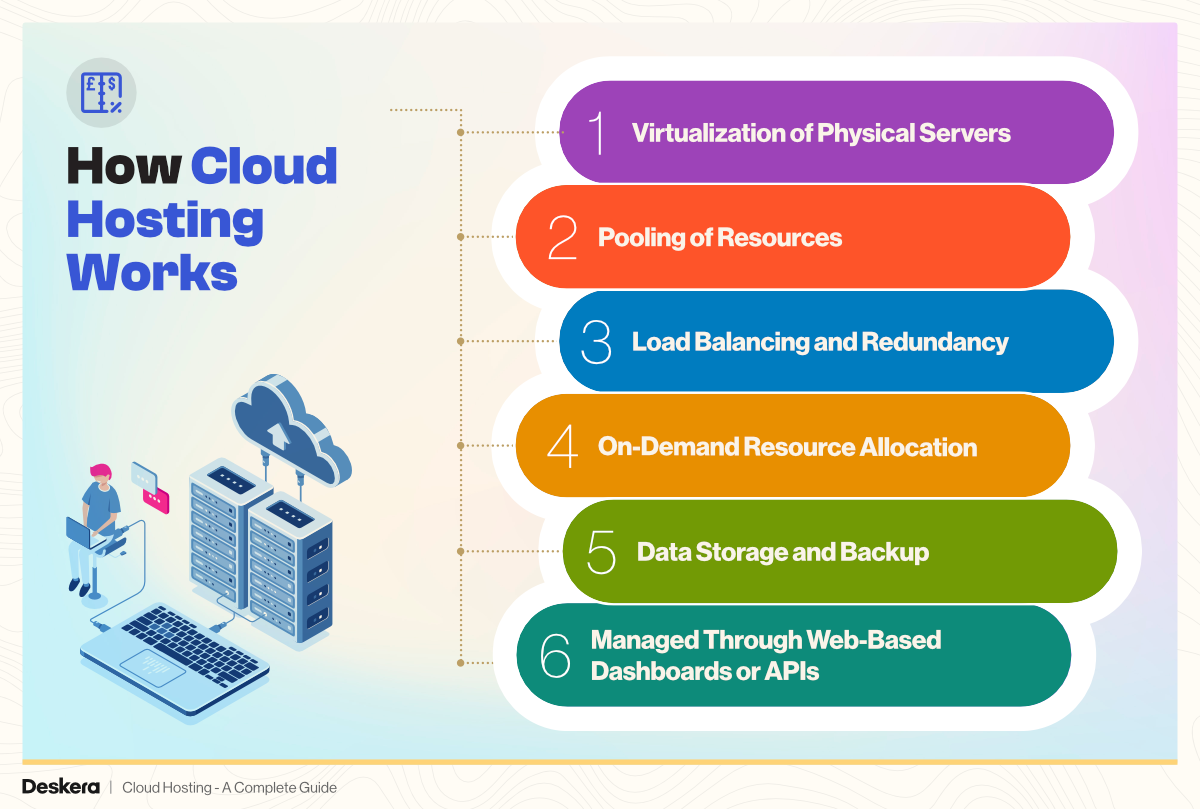
Why Do I Need a Hosting Service?
Having a hosting service is essential for several reasons:
-
Accessibility: Without hosting, your website would not be accessible to anyone on the internet. Think of it as trying to live in a house that has no land—there’s nowhere for it to stand. A hosting service ensures your website is available 24/7, so anyone can visit it at any time.
-
Storage: Just like a house needs storage space for furniture and belongings, your website requires storage for all its files. A hosting service provides the necessary storage capacity to accommodate your website’s content, whether it’s text, images, videos, or other data.
-
Performance: The performance of your website is crucial for user experience. A good hosting service ensures that your website loads quickly and can handle multiple visitors simultaneously. If your website is hosted on a slow server, it’s like living in a poorly constructed house that can’t handle visitors; they may leave before they even get inside.
-
Security: When you own a house, you take steps to protect it, such as locking doors and installing alarms. Similarly, a hosting service provides various security measures to protect your website from threats like hacking and malware. This ensures that your visitors’ data, as well as your own, remains safe.
-
Support: If you encounter issues with your website, a reliable hosting service offers customer support to help you troubleshoot problems. It’s like having a property manager who can assist you with maintenance and repairs whenever something goes wrong in your house.

In conclusion, web hosting is a vital part of creating and maintaining a successful website. By understanding the role of servers, the connection between domains and hosting, and the benefits of having a hosting service, you can make informed decisions when choosing the right hosting plan for your needs. Whether you’re a small business owner, blogger, or developer, selecting the right web hosting provider is essential for ensuring that your website is accessible, secure, and performing at its best.
Types of Web Hosting: A Detailed Comparison
| Hosting Type | Best For | Performance | Price Range | Key Pro | Key Con |
|---|---|---|---|---|---|
| Shared Hosting | Beginners, small websites | Moderate | $2.49 – $15/mo | Cost-effective | Limited resources |
| VPS Hosting | Growing websites, developers | High | $20 – $100/mo | Dedicated resources | More complex management |
| Dedicated Server Hosting | Large businesses, high traffic | Very high | $80 – $500+/mo | Full control and performance | Expensive and requires expertise |
| Cloud Hosting | Scalability needs, eCommerce | Very high | $10 – $500+/mo | Flexible resource allocation | Can be complicated to manage |
| Managed WordPress Hosting | WordPress sites | High | $15 – $100+/mo | Optimized for WordPress | Higher cost than shared hosting |
Shared Hosting
What It Is:
Shared hosting is the most basic type of web hosting service where multiple websites share a single server’s resources. This includes CPU, RAM, and disk space. It’s typically managed by the hosting provider, which handles server maintenance, security, and software updates.
Who Should Use It:
Shared hosting is ideal for beginners, small business owners, and bloggers who are just starting out and have limited technical knowledge. It’s also suitable for personal websites and small projects that don’t expect a high volume of traffic.
Pros:
– Cost-effective: Shared hosting is one of the most affordable options, making it accessible for small budgets.
– User-friendly: Many providers offer easy-to-use control panels and one-click installs for popular applications.
– Managed services: The hosting provider takes care of server maintenance and security, allowing users to focus on content creation.
Cons:
– Limited resources: Since you share server resources with other users, your website may experience slower performance during peak times.
– Less control: You have limited customization options and may not be able to install certain software or applications.
– Potential security risks: If one site on the server is compromised, others may be at risk as well.
VPS Hosting
What It Is:
Virtual Private Server (VPS) hosting provides a middle ground between shared hosting and dedicated server hosting. It uses virtualization technology to partition a physical server into multiple virtual servers, each with its own dedicated resources.
Who Should Use It:
VPS hosting is best for growing websites, developers, and businesses that require more control and resources than shared hosting can provide. It’s suitable for sites expecting moderate to high traffic and those that require custom software installations.
Pros:
– Dedicated resources: Unlike shared hosting, you have a guaranteed amount of CPU, RAM, and disk space, resulting in better performance.
– Greater control: You have more control over the server environment, allowing for custom configurations and software installations.
– Scalability: Easily upgrade your plan to accommodate traffic growth without significant downtime.
Cons:
– Higher cost: VPS hosting is more expensive than shared hosting, which can be a consideration for small businesses.
– Management complexity: While VPS hosting offers more control, it often requires more technical knowledge to manage effectively.
– Potential for resource contention: If other VPS users on the same physical server consume excessive resources, it can affect your website’s performance.
Dedicated Server Hosting
What It Is:
Dedicated server hosting provides an entire physical server for a single user or organization. This means you have complete control over the server’s resources and configurations.
Who Should Use It:
This type of hosting is suitable for large businesses, high-traffic websites, and applications that require extensive resources, such as gaming servers or high-performance applications.
Pros:
– Full control: You can customize the server to meet specific needs, including hardware and software configurations.
– High performance: Dedicated resources mean your site can handle large amounts of traffic and complex applications without performance issues.
– Enhanced security: With no other users on the server, you have greater control over security measures.
Cons:
– Expensive: Dedicated servers are typically the most costly option, making them less accessible for small businesses or individual users.
– Requires technical expertise: Managing a dedicated server requires a good understanding of server administration, including security and maintenance.
– Longer setup time: Provisioning a dedicated server can take longer than other hosting types due to the hardware setup and configuration.
Cloud Hosting
What It Is:
Cloud hosting utilizes a network of virtual servers to host websites, allowing for scalable resources that can be adjusted based on demand. This means that instead of being hosted on a single server, your website is hosted across multiple servers.
Who Should Use It:
Cloud hosting is perfect for businesses that need flexibility and scalability, such as eCommerce sites, startups, and applications with fluctuating traffic.
Pros:
– Scalability: Easily scale resources up or down based on traffic demands, making it ideal for growing businesses.
– High availability: If one server fails, your site can seamlessly switch to another server, minimizing downtime.
– Cost-effective for high usage: You pay for the resources you use, which can save money during low-traffic periods.
Cons:
– Complex management: Cloud hosting can be more complicated to set up and manage compared to traditional hosting options.
– Variable costs: While it can be cost-effective, unpredictable traffic can lead to higher-than-expected bills.
– Less control: Depending on the provider, you may have less control over the physical servers and underlying infrastructure.
Managed WordPress Hosting
What It Is:
Managed WordPress hosting is a specialized hosting service tailored specifically for WordPress websites. Providers take care of all the technical aspects, including updates, security, backups, and performance optimizations.
Who Should Use It:
This type of hosting is ideal for individuals and businesses running WordPress sites who want to focus on content creation rather than server management. It’s particularly beneficial for those who lack technical skills or prefer not to deal with the complexities of hosting.
Pros:
– Optimized for WordPress: Managed hosting environments are specifically designed to enhance WordPress performance, leading to faster load times.
– Automatic updates and backups: Providers typically handle core updates and backups, ensuring your site remains secure and up-to-date.
– Expert support: Many managed WordPress hosts offer support from WordPress experts who can assist with site-specific issues.
Cons:
– Higher cost: Managed WordPress hosting is usually more expensive than shared hosting, which can be a barrier for some users.
– Limited to WordPress: This type of hosting is only suitable for WordPress sites, so if you plan to run multiple types of websites, you’ll need a different solution.
– Less control: Some managed hosting providers may restrict certain plugins or configurations to maintain performance and security.
By understanding the different types of web hosting available, you can make an informed decision on which option best suits your needs and budget, ensuring your website operates smoothly and efficiently.
How to Choose a Hosting Provider: A 5-Point Buyer’s Guide
Performance and Uptime
When choosing a hosting provider, one of the most critical factors to consider is performance and uptime. Performance refers to how quickly your website loads and responds to user requests, while uptime is the measure of how often your website is operational and accessible to visitors.
Importance of Performance and Uptime
A slow-loading website can lead to a poor user experience, higher bounce rates, and ultimately lower conversion rates. In fact, studies indicate that a delay of just one second in page load time can result in a 7% reduction in conversions. Uptime is equally crucial; a website that is frequently down not only frustrates visitors but can also harm your search engine rankings.
What to Look For
- Uptime Guarantee: Most reliable hosting providers offer an uptime guarantee, typically around 99.9%. Ensure that the provider has a solid track record of meeting this promise.
- Performance Metrics: Look for information on average load times and server response times. Some hosts provide performance benchmarks or customer testimonials that can help you gauge their efficiency.
- Content Delivery Network (CDN): A CDN helps distribute your website’s content across multiple servers worldwide, which can significantly improve loading speeds for users in different geographical locations.
- Load Testing: Some providers allow you to conduct load testing to simulate traffic surges. This can help you understand how well your site will perform under high traffic conditions.
Customer Support
Customer support is another vital aspect when selecting a hosting provider. You want to ensure that help is readily available if issues arise, as downtime or technical problems can cost you money and reputation.
Importance of Customer Support
Good customer support can be the difference between quickly resolving an issue and prolonged downtime. Many hosting providers offer support through various channels, including live chat, email, and phone.
What to Look For
- Availability: Check if customer support is available 24/7. This is especially important if your business operates outside of regular business hours.
- Multiple Support Channels: Look for providers that offer various support options, such as live chat, ticketing systems, and phone support.
- Response Times: Research average response times for customer inquiries. A quick response can make a significant difference in resolving issues efficiently.
- Knowledge Base and Community Forums: A well-organized knowledge base can empower you to solve simple problems independently. Community forums are also beneficial for sharing experiences and solutions with other users.
Pricing and Renewal Rates
Pricing is often a deciding factor for many small business owners and individuals starting a website. However, it’s essential to consider not just the initial cost but also renewal rates and any hidden fees.
Importance of Pricing and Renewal Rates
While a low initial price can be attractive, many hosting providers significantly increase their renewal rates after the first term. Understanding the total cost of ownership over time is crucial for budgeting and financial planning.
What to Look For
- Introductory vs. Renewal Rates: Always check the renewal rates after the initial term. A plan that seems cheap upfront may become costly in the long run.
- Hidden Fees: Look for any additional costs for features like backups, SSL certificates, or domain registrations. Reading the fine print can save you from unexpected expenses.
- Money-Back Guarantee: A money-back guarantee allows you to test the service risk-free. Look for providers offering at least a 30-day money-back guarantee.
- Value for Features: Assess what features are included in the pricing. Some hosts may offer additional benefits, such as free SSL certificates or website migration services, which can provide better value.
Security Features (SSL, Backups)
In today’s digital landscape, security is paramount. A secure website not only protects your business but also builds trust with your visitors.
Importance of Security Features
Security breaches can lead to data loss, financial loss, and damage to your reputation. Implementing robust security measures is essential to safeguard sensitive information and maintain user trust.
What to Look For
- SSL Certificates: An SSL certificate encrypts data between your website and its visitors, which is crucial for protecting sensitive information. Look for hosting providers that offer free SSL certificates.
- Regular Backups: Ensure that your hosting provider offers automatic backups at regular intervals. This feature allows you to restore your site in case of data loss or corruption.
- Malware Scanning and Removal: Some providers include malware scanning and removal tools to help detect and mitigate security threats.
- Firewall and DDoS Protection: A good hosting provider should offer firewall protection and measures against Distributed Denial of Service (DDoS) attacks to keep your site safe from malicious traffic.
Scalability and Future Growth
As your business or blog grows, your hosting needs may change. Therefore, it’s essential to choose a hosting provider that can scale with you.
Importance of Scalability
A scalable hosting solution allows you to upgrade your resources easily without having to migrate to a new server or provider. This flexibility can save you time, money, and hassle as your website grows.
What to Look For
- Upgrade Options: Look for providers that offer a range of hosting plans, from shared hosting to VPS and dedicated servers. This will allow you to upgrade your plan as your traffic increases.
- Resource Allocation: Check how resources like bandwidth, storage, and CPU can be adjusted. Some hosts allow you to customize these resources based on your needs.
- Migration Services: If you need to switch to a more powerful plan, ensure that the provider offers free or affordable migration services to make the transition seamless.
- Performance Under Load: Inquire about how the hosting provider handles traffic spikes. Look for features like auto-scaling, which automatically adjusts resources based on demand.
Conclusion
Choosing the right hosting provider is a crucial decision that can significantly impact your website’s performance, security, and overall success. By carefully considering factors such as performance and uptime, customer support, pricing and renewal rates, security features, and scalability, you can make an informed choice that aligns with your business goals and budget. Take your time to research and compare different hosting options to find the one that best fits your needs.
Key Hosting Terms and Jargon Explained
cPanel
cPanel is a web-based control panel that allows users to manage their web hosting accounts through an intuitive interface. It provides a graphical interface and automation tools designed to simplify the process of hosting a website. With cPanel, users can perform various tasks such as:
- Domain Management: Add, remove, or manage domains and subdomains.
- Email Accounts: Create and manage email accounts associated with the domain.
- File Management: Upload, delete, and manage files and directories on the server.
- Database Management: Create and manage databases using tools like phpMyAdmin.
- Security Features: Set up SSL certificates, manage IP blocks, and configure password protection.
cPanel is widely used by web hosting providers due to its user-friendly nature, making it accessible even for those with minimal technical knowledge.
SSL Certificate
An SSL (Secure Socket Layer) certificate is a digital certificate that encrypts data transferred between a web server and a browser, ensuring that sensitive information such as passwords and credit card numbers are transmitted securely. Here are key points about SSL certificates:
- Security: SSL certificates protect against eavesdropping and man-in-the-middle attacks.
- Trust: Websites with SSL certificates display a padlock icon in the address bar, signaling to users that their connection is secure.
- SEO Benefits: Google considers HTTPS (the secure version of HTTP, which uses SSL) as a ranking factor, meaning having an SSL certificate can improve your website’s visibility in search results.
- Types: There are several types of SSL certificates, including Domain Validated (DV), Organization Validated (OV), and Extended Validation (EV), each offering different levels of verification and trust.
Bandwidth and Data Transfer
Bandwidth refers to the maximum amount of data that can be transferred over your internet connection in a given time frame, usually measured in bits per second (bps). Data transfer, on the other hand, refers to the actual amount of data sent and received by your website during a specific period, typically measured in gigabytes (GB). Understanding these concepts is crucial for managing your hosting plan:
- Bandwidth: Think of bandwidth as the size of a highway. A wider highway can handle more vehicles at once, just as higher bandwidth allows more data to be transferred simultaneously.
- Data Transfer: This is akin to the total number of vehicles that pass through the highway in a month. Hosting providers often set limits on both bandwidth and data transfer. If you exceed these limits, you may incur extra charges or your website may experience slowdowns or downtime.
Storage (SSD vs. HDD)
Storage is where all the files, databases, and content of your website are saved. There are two main types of storage used in web hosting:
-
HDD (Hard Disk Drive): Traditional storage that uses spinning disks to read and write data. HDDs are generally less expensive but are slower than SSDs. They are suitable for sites that do not require high-speed access to data.
-
SSD (Solid State Drive): A newer technology that uses flash memory to store data, resulting in much faster read and write speeds. SSDs improve website performance, load times, and overall user experience. They are more expensive than HDDs but are increasingly becoming the standard for web hosting due to their speed and reliability.
When selecting a hosting plan, consider the type of storage offered, as it can significantly affect your website’s performance.
Domain Name System (DNS)
The Domain Name System (DNS) is a hierarchical system that translates human-readable domain names (like www.example.com) into machine-readable IP addresses (like 192.0.2.1). Here’s how it works and why it’s important:
- Functionality: When a user types a domain name into their browser, the DNS servers look up the corresponding IP address to connect the user to the correct web server. This process happens in milliseconds and is essential for internet navigation.
- Components: DNS includes various records, such as A records (which link domain names to IP addresses), CNAME records (which alias one domain name to another), and MX records (which direct email to the correct server).
- Management: Most hosting providers offer DNS management tools within their control panels, allowing users to configure their domain settings easily.
Understanding DNS is crucial for anyone managing a website, as it affects accessibility and email delivery.
Uptime
Uptime refers to the amount of time that a web server is operational and accessible to users. It is usually expressed as a percentage, with 100% uptime indicating that the server is always available. Here are some critical aspects to consider regarding uptime:
- Importance: High uptime is essential for maintaining a reliable online presence. Downtime can lead to lost revenue, damaged reputation, and a poor user experience.
- Service Level Agreements (SLAs): Many hosting providers guarantee a certain level of uptime (e.g., 99.9%). If they fail to meet this guarantee, they may offer compensation or service credits.
- Monitoring: Website owners can use various tools to monitor their site’s uptime, ensuring that any issues are addressed promptly.
Choosing a hosting provider with a strong uptime record is vital for anyone looking to maintain a successful online presence.
Frequently Asked Questions (FAQs)
1. Can I host my own website?
Yes, you can host your own website using your personal computer or a dedicated server. This process is known as self-hosting. However, it requires technical knowledge, continuous management, and can involve higher costs in terms of electricity and hardware maintenance. For most small business owners, bloggers, and individuals, using a web hosting service is more practical as it provides the necessary infrastructure, security, and support.
2. How much should I pay for hosting?
The cost of web hosting varies widely based on the type of hosting, the features you need, and the provider you choose. Basic shared hosting plans can start as low as $2 to $10 per month, while VPS and cloud hosting can range from $10 to $100 or more per month. Consider your budget, the expected traffic, and the specific requirements of your website when choosing a hosting plan.
3. What’s the difference between a domain and hosting?
A domain is your website’s address on the internet (e.g., www.yourwebsite.com), while hosting is the service that stores your website’s files and makes them accessible on the internet. You need both a domain and hosting to have a functioning website. The domain is like your home’s address, and hosting is the physical space where your home is built.
4. What are the different types of web hosting?
There are several types of web hosting services, including:
– Shared Hosting: Multiple websites share the same server resources. It’s cost-effective and ideal for beginners.
– VPS Hosting: Virtual Private Server hosting provides dedicated resources on a shared server, offering more control and better performance.
– Dedicated Hosting: You lease an entire server for your website, providing maximum control and performance, suitable for high-traffic websites.
– Cloud Hosting: Your website is hosted on a network of servers, allowing for scalability and reliability.
– Managed WordPress Hosting: Specifically optimized for WordPress sites, it includes features like automatic updates and backups.
5. How do I choose the right web hosting provider?
When selecting a web hosting provider, consider the following factors:
– Performance and uptime: Look for a host with a strong uptime guarantee (99.9% or higher).
– Customer support: Ensure they offer 24/7 support through multiple channels (chat, phone, email).
– Features: Assess the features you need, such as storage, bandwidth, email accounts, and security options.
– Pricing: Compare the costs of different plans, including renewal rates and any additional fees.
– Reputation: Read reviews and testimonials from other users to gauge the host’s reliability and service quality.
6. What is the importance of website backups?
Website backups are crucial for protecting your data against loss due to server failures, hacking, or accidental deletion. Regular backups ensure that you can restore your website to a previous state quickly if something goes wrong. Many hosting providers offer automated backup solutions, but it’s wise to have your own backup strategy in place as well.
7. Can I switch my hosting provider later?
Yes, you can switch your hosting provider at any time. However, the process can involve transferring your domain, migrating your website files, and configuring settings with the new host. It’s essential to plan the transition carefully to minimize downtime and ensure that all your data is moved correctly. Most hosting providers offer migration services or assistance to help with this process.
8. What is SSL, and do I need it for my website?
SSL (Secure Socket Layer) is a security protocol that encrypts data exchanged between your website and its visitors. Having an SSL certificate is essential for protecting sensitive information, such as personal details and payment information. Additionally, search engines like Google prioritize secure websites in their rankings, making SSL important for SEO. Most reputable hosting providers offer free SSL certificates with their hosting plans.
Conclusion: Making Your Final Decision
Assessing Your Unique Hosting Needs
Choosing the best web hosting service ultimately comes down to your individual needs. Factors such as budget, expected website traffic, and your level of technical expertise play crucial roles in determining the right provider for you. For instance, if you’re just starting and have a limited budget, options like Hostinger can provide exceptional value without overwhelming you with complex features. On the other hand, if you’re running an eCommerce site that requires robust performance and reliability, ScalaHosting might be the better choice due to its cloud infrastructure and dedicated support.
Key Considerations
As you weigh your options, keep these essential factors in mind:
-
Support: Reliable customer support can make or break your hosting experience. Look for providers that offer 24/7 support, especially if you’re not tech-savvy or anticipate needing assistance frequently.
-
Uptime: Ensure that your chosen host has a strong uptime guarantee. An uptime of 99.9% or higher is ideal, as even minor downtimes can lead to lost traffic and revenue.
-
Scalability: Your hosting needs may change as your website grows. Opt for a host that allows for easy upgrades and scaling of resources, ensuring that you won’t outgrow your hosting plan too quickly.
Take the Leap
With a clear understanding of your requirements and the factors that matter most, you’re now equipped to make an informed decision. Don’t let the multitude of options overwhelm you. Start your project with confidence, knowing that the right web hosting service is out there to support your journey. Whether you’re a small business owner, a budding blogger, or a seasoned developer, taking the first step is crucial. Embrace the opportunity to bring your vision to life, and choose a hosting provider that aligns with your goals.
Important Disclaimer
⚠️ Important Disclaimer
The information and reviews in this guide are for educational purposes, based on publicly available data and our own analysis. We are not affiliated with any hosting providers mentioned. Features, pricing, and performance change frequently. Always conduct your own research and check the provider’s official website before making a purchase.
